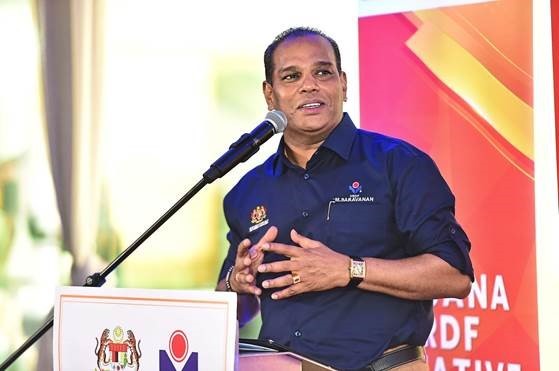
When the government launched the Penjana programme on June 5,2020, to help those whose livelihoods have been affected, part of the effort with the Human Resources Development Fund (HRDF) was to reskill those who have lost their jobs due to a contracting economy.
The agency, which is under the purview of Ministry of Human Resources, now implements this Penjana HRDF Initiative, which will benefit 112,000 Malaysians.
About 41,000 jobs have been approved with 16,000 Malaysians being placed with jobs.
This is the first out of three associations that focuses on the training providers whose role is to train and provide job placements to affected citizens.
For a long while, trainers in Malaysia have not receive much highlight or prominence in the role in propelling the country’s success.
That is something the Malaysian Association of Professional Trainers and Coaches (MAPTaC) president Sunil Hasmukharay believes needs highlighting.
“Trainers in Malaysia have been sidelined, and have never been regarded as a professional group of people who add significant value, ” he said, a perception he hopes to change for trainers to play a critical role, even more so in these difficult times.
Formed four years to unite more than 30,000 dispersed trainers in the country, MAPTaC enhances the quality of its trainers by providing support and network – to facilitate cross support, referrals and the sharing of resources.
By enriching human capital development, MAPTaC envisions a united community of trainers and coaches that can propel the nation’s economy forward in its human development agenda.
“In this time, within the economic downturn and pandemic, small and medium enterprises (SMEs) are rounding off and people are losing their jobs.
“What helps at this point is to upskill and reskill – developing the workforce to be future ready.
“That’s where HRDF plays an important role as a catalyst and an enabler for this to happen, ” asserted Sunil.
He pointed out that now is not the time to build a mega business but more of trying to survive and sharpening skills to shine and thrive later.
Under the Penjaja HRDF Initiative, there are five schemes that reach out to every segment in society: Place & Train; B40 Development; the Gerak Insan Gemilang Scheme (aka the GIG Scheme) the IR4.0 Scheme; and SME Development.
They are conducted and supported by Malaysian trainers and coaches who have vast expertise and experience. These include specialist certifications and accreditations from foreign bodies and institutions.
Sunil shared that many MAPTaC trainers are currently conducting training that helps new employees to be placed in organisations as part of the Place & Train Scheme.
“For the GIG Scheme training, we work with a huge group of young people between the ages of 15 and 40 years on how to become entrepreneurs, sales persons or to use different skills to generate revenue for themselves.”
Practical skills such as digital marketing, social entrepreneurship, photography and videography, editing, bake-and-sell, etc. will help them pick up freelance jobs or take up part-time positions in order to generate some income.
“The SME training helps SMEs upskill and learn new tools to reinvent themselves in these challenging times.
“A lot of SMEs previously have never gone on a digital marketing mode because they were happy with the brick and mortar business.”
Now faced with the advent of the industrial revolution, they have to change, and the Penjana HRDF Initiative schemes help them by providing free training and giving them the skills, capability and tools to help them turn their business from offline to online.
He also said that the government is helping many of the B40 segment who find it difficult to earn a living to be equipped with new skills through the B40 Development Scheme.
“The programmes gives them practical skills for freelance work as well. More importantly, this initiative helps us serve our purpose and work on our passion, which is to train and upskill and build human capital for Malaysia, ” he elaborated.
“We as trainers and coaches in Malaysia must be committed to upskilling ourselves continuously to add value to the national agenda of enhancing human capital development.
“At the end of the day, it’s about the quality of the trainer who will transmit his knowledge to the workforce, ” Sunil said.
Sunil rationalised that as trainers train the workforce to yield improved productivity in profits and performance for respective companies, collectively, the country’s economy receives a boost.
“Trainers and coaches are the catalyst for human capital development in Malaysia, ” he concluded.
Source: https://www.thestar.com.my/news/nation/2020/11/27/training-key-to-upskills-survival

